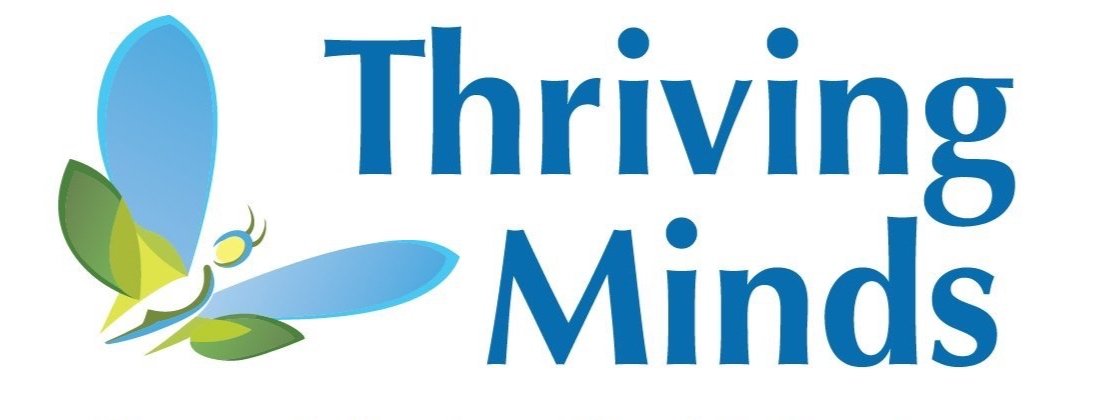Expert Evaluation and Treatment for Selective Mutism
The therapists at Thriving Minds are highly trained and experienced in the treatment of Selective Mutism, a childhood anxiety disorder. Children with Selective Mutism have great difficulty speaking or communicating in public or social settings (e.g., school, extracurricular activities, extended family), but can speak in comfortable situations (e.g., in the home or with immediate family).
Request an appointment today.
Types of Selective Mutism Treatment at Thriving Minds
Thriving Minds offers five models of treatment for Selective Mutism:
Individual (Weekly) Treatment: Grow your child’s brave voice through weekly sessions with one of our expert therapists using behaviorally-based intervention techniques. Sessions will also incorporate community exposures or peer practices. Your therapist will also consult with your child’s school.
Clinic Intensive: Build momentum and capitalize on treatment gains with the intensive model (15-20 hours over 3-5 consecutive days). Address communication goals in the community setting alongside your child so that you feel confident with the intervention techniques when you return home. This program is offered year-round (only at our Chelsea location).
School Intensive: One of our experts will travel to you and work with your child to grow their brave voice in his/her school! Your therapist will also help your child’s teachers and school staff to understand and use the evidence-based behavioral techniques. This program is offered during the school year (at schools in mid- and southeastern-Michigan). Learn more.
Confident Kids Camp: Held once per year at the end of the summer, this five-day group intensive incorporates both school and community communication goals. Students are placed in a “classroom” of approximately 8 age-matched peers and individually partnered with a counselor to help them make and meet brave talking goals in many settings. Learn more.
Parent/School/Community Consultation: Schools, relatives, coaches, and others need to understand Selective Mutism and have successful strategies for interacting with kids with SM. Our therapists provide Zoom or phone consultations to help teach, train, and coach adults to be helpful brave coaches, and to set up school or community plans.
Schedule a free 15-minute phone consultation with our Selective Mutism Program Director, Katelyn Reed, MS, LLP, to discuss the best treatment option(s) for you and your child. Call (734) 433-5100
Free 15-minute consultations are available for sleep disorders, selective mutism and school refusal.
Effective Strategies for Treating Selective Mutism
All models of Selective Mutism treatment include a combination of some (or all) of the following strategies or components:
Exposures/Stimulus Fading: The primary component of Selective Mutism treatment is the use of what is called exposure, or gradually facing the fear of speaking and communicating. One form of exposure that is commonly used in Selective Mutism treatment is stimulus fading. Stimulus fading is a form of exposure therapy that slowly introduces the client to anxiety-provoking stimulus. In the context of Selective Mutism, this technique is used to gradually introduce the client to new people, new settings, or larger settings that cause anxiety. If introduced at a gradual pace, anxiety will decrease over time. This procedure can be easily tailored to the needs of the client.
Positive Reinforcement for Speech: While the client is being faded into situations that cause anxiety, setting up rewards for speaking to these new people or speaking in new settings will allow the client to recognize that speaking in these settings is beneficial. The therapist will work with parents to establish systems that track progress and provide rewards for brave behaviors.
"Brave Practices": As treatment progresses, the therapist will set up situations that allow the client to speak and receive rewards for speaking immediately. These are what we call "brave practices." Brave practices can occur not only in the clinic, but also in the community and in school. For example, a common brave practice is to go to an ice cream parlor to practice ordering ice cream. This allows for the client to practice ordering from a novel person and receive ice cream as a direct result. Once again, these practices can be tailored to the client's needs.
Parent Training: Weekly psychotherapy sessions are incredibly beneficial for reversing the effects of Selective Mutism, but brave practices that occur outside of weekly sessions contribute exponentially to the child's progress. Therapists will train parents to conduct fade ins and set up brave practices so these interventions can be implemented in everyday life.
School Consultations: For child with Selective Mutism, school can be an incredibly difficult setting. If Selective Mutism symptoms aren't addressed in this setting, the child's learning can be severely impacted. Unfortunately, not may clinics are equipped to help bring Selective Mutism treatment strategies into the school setting. Our therapists, however, regularly offer training and consultation with schools to help create consistent expectations and interventions in all environments.
Developing Special Education Plans: For many schools, an Individualized Education Plan (IEP) is needed in order to make accommodations in the classroom. Our clinicians are able to write reports and attend meetings to help advocate for the development of a plan for the client.
Read our client testimonials HERE
Learn effective tools for helping children find their brave voice
Whether you’re a parent seeking support or a professional in need of a “crash course” in treating selective mutism, join Thriving Minds' owner and psychologist Aimee Kotrba, Ph.D., as she shares her 5-hour workshop. Dr. Kotrba provides participants with an engaging seminar packed full of practical tips that can be put into action right away. Help your child or student reach their full potential.
Dr. Kotrba offers consultation to professionals and parents about the following topics:
Treatment for selective mutism
Supporting children with SM in schools (providing consultation to school-based professionals)
Starting a group or solo private practice
Creating an intensive offering, such as Confident Kids Camp.
Schedule a one-hour professional consultation with Dr. Kotrba using the form below.
Want to learn more about helping your child, student, or client with Selective Mutism?
Click here to find out about upcoming child groups, parent workshops, and professional trainings
Click here to read articles about Selective Mutism—updated monthly.
Click here for a list of Selective Mutism resources.


